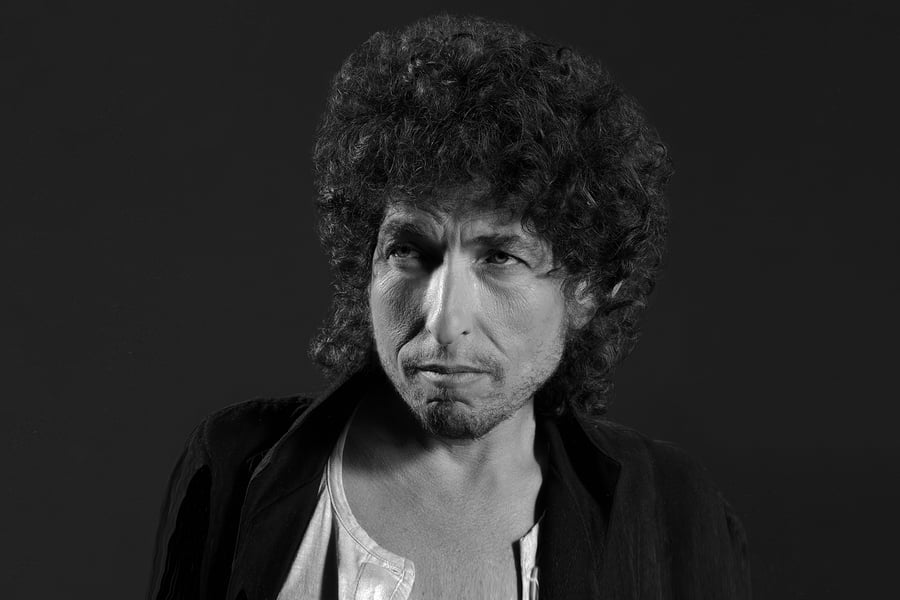The Eighties are widely regarded as the low point of Bob Dylan’s entire career, a time when he struggled to find relevance in the MTV era and released a series of tacky, rudderless albums that were savaged by fans and critics. Even Dylan himself refuses to defend his output from the time. “[I was] pretty whitewashed and wasted out professionally,” he recalled in his 2004 memoir Chronicles: Volume One. “I’m in the bottomless pit of cultural oblivion. You name it. I can’t shake it.”
But the newest chapter of the bootleg series, Springtime In New York (1980-1985), forces us to reevaluate this notion completely. The overwhelming amount of material — 54 unreleased songs total — proves that even at Dylan’s lowest point, he was still capable of writing great music, even if the best songs often didn’t wind up on his albums. This wasn’t a failure of creativity. It was a failure of curation.
The five-disc collection focuses on 1983’s Infidels, while also shedding light on the records that bookend it: Shot of Love, the last of his born-again Christian albums, and the glitzy Empire Burlesque. The former showed Dylan continuing his divisive streak of born-again Christian albums (“No more,” this magazine wrote. “For me, it stops right here”) while the latter is an excessive, shimmery affair that has more in common with She’s So Unusual than Highway 61 Revisited.
Springtime opens with rehearsals for Dylan’s Musical Retrospective Tour in the fall of 1980, where he was backed by the under-appreciated singer Clydie King. The shows were billed as a return to some of his older songs, following his strict gospel-only setlists, but instead of “Simple Twist of Fate” we get several wildcards: covers of hit songs at the time, like Bill LaBounty’s “This Night Won’t Last Forever” and Dave Mason’s “We Just Disagree” (he also reportedly covered “The Rainbow Connection,” but unfortunately it didn’t make the cut). Perhaps because Dylan never intended the public to hear them, these renditions are intimate, raw, and even joyous. Close your eyes to his take on “Sweet Caroline,” and you’ll forget someone else wrote it.
While the original Infidels demonstrated Dylan’s genius ability to assemble a band — Dire Straits’ Mark Knopfler (who produced the album) and Alan Clark, the Stones’ Mick Taylor, and the reggae duo Sly Dunbar and Robbie Shakespeare — he left many of the best songs off the album in favor of duds like “Union Sundown.” Gems like “Foot of Pride” and “Someone’s Got a Hold of My Heart,” later reworked as “Tight Connection to My Heart” on Empire Burlesque, would have made the album infinitely better.
And then there’s “Blind Willie McTell,” one of his finest songs of his career. A great version was released on the first chapter of the Bootleg Series back in 1991, but this one is even better, as Dylan wails “There’s a chain gang on the highway/I can hear them rebels yell” with sparkling clarity. There are two takes of “Don’t Fall Apart on Me Tonight,” and the first, a desperate, slow-burning plea, arrives like a gust of wind to the throat. How is it that we’ve gone nearly 40 years without hearing this?
On a different version of “Sweetheart Like You,” the sweetheart in question is no longer wearing a cute hat, but a pair of boots. This doesn’t change the misogynistic tone of the tune, where Dylan points out, “You know a woman like you should be at home, that’s where you belong.” (Reflecting on the ballad in an interview, he admitted, “That line didn’t come out exactly the way I wanted it to.”)
Love Music?
Get your daily dose of everything happening in Australian/New Zealand music and globally.
The Empire Burlesque material has been stripped of producer Arthur Baker’s synths and gated drums. What remains are the tracks in their purest form — like a sprawling “New Danville Girl” that clocks in at nearly 12 minutes. But the highlight is undoubtedly Dylan’s legendary 1984 performance on Late Night With David Letterman. In the same way that Neil Young grew fascinated with New Wave and linked up with Devo, Dylan recruited punk band the Plugz for his appearance. The energy he fed off the young musicians was so palpable that Letterman asked, “Is there any chance you guys can be here every Thursday night?”’
If Dylan had gone on tour with these guys, would he have had a more successful decade? If he had kept his best songs on the albums, would they now be regarded classics? It’s these kinds of what-ifs that make Springtime so gripping — and so essential.
From Rolling Stone US



































